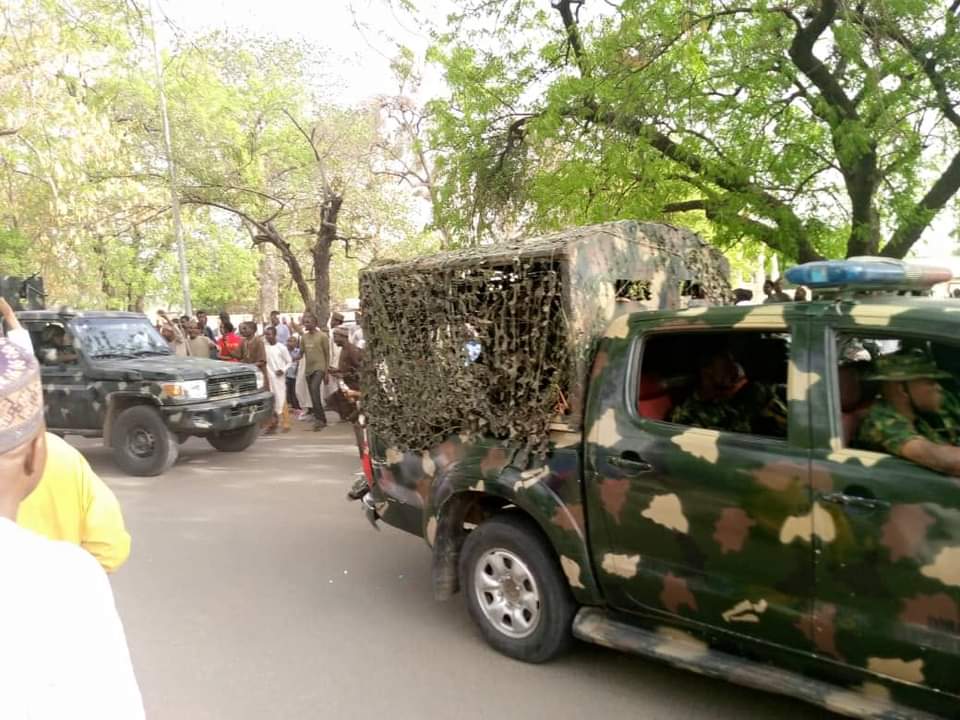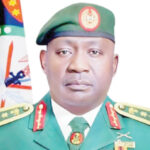The military high command has warned those calling for the take over the President Bola Tinubu-led government to desist from making such demand.
It specifically said their call was “treasonable”, warning that such persons would be made to face the wrath of law if they continue to make such calls.
Daily Trust had reported how some Nigerians in a viral video blocked some military personnel’s vehicle while calling on them to take over the current administration.
Their demands, as sighted in the viral video, were premised upon the growing hardship in the country occasioned by removal of fuel subsidy and floatation of Naira by the federal government.
- CNG: Expert pushes for clean energy to address global warming
- ‘He attempted fleeing Nigeria’, Immigration breaks silence on Bobrisky’s arrest
But reacting to their calls, the Director, Defence Information, Tukur Gusau, said they are plotting to cause disharmony in the country.
Gusau, a Brigadier-General, explained that the military does not have reasons to take over the government because they have enjoyed enormous support from the President.
“The relative peace being enjoyed today is a direct result of the President’s support for the military and the dedication of the Armed Forces of Nigeria (AFN) leadership,” the senior military officer said.
According to him, the military is steadfastly committed to the preservation and advancement of Nigeria’s democracy, and that they are loyal to the Tinubu-led administration.
He stated: “Those advocating for a military takeover, as seen in a viral video, should be aware that such actions are treasonable under the Constitution.
“The AFN is steadfastly committed to the preservation and advancement of our democracy and is loyal to President Bola Ahmed Tinubu’s administration.
“The military remains focused on achieving its statutory responsibilities of protecting the nation’s integrity.
“To this end, the AFN and relevant security agencies have been mandated to take necessary action against any individual or group advocating for unconstitutional changes in the country.”

 Join Daily Trust WhatsApp Community For Quick Access To News and Happenings Around You.
Join Daily Trust WhatsApp Community For Quick Access To News and Happenings Around You.


